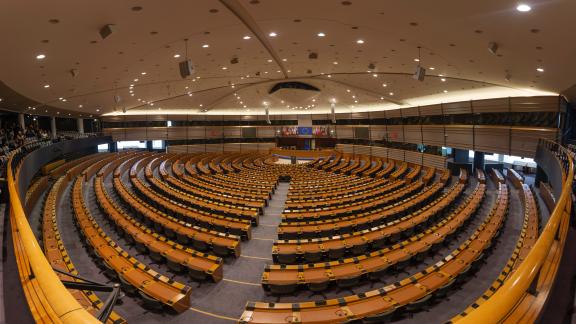MEPs play a huge role in securing reproductive freedom and gender equality in the EU and abroad. Following the election of a new European Parliament, IPPF EN will continue working closely with them to ensure that these issues remain high on the EU’s agenda.
The May 2019 elections for the European Parliament had a record high turnout of over 50% across the EU. This is the largest number of Europeans to have turned up at the ballot box in two decades. It shows that citizens recognise the importance of the EU in shaping their daily lives.
The outcomes of this election will likely elicit a shifting of the balance of power in the EU, with both centre-left and centre-right groups losing support in favour of smaller groupings. Forming a majority coalition will be more difficult and will require cooperation from more than just the two largest blocs. The far right and Eurosceptic parties have made progress in some countries (notably Italy, Hungary and Poland), but have been contained in others (Austria, Denmark and Spain). While the emergence of new parliamentary groups may still result in a greater platform for some of these movements to express their regressive beliefs, they are unlikely to be able to seriously disrupt the European Parliament’s work.
Although the proportion of progressive forces in the newly elected European Parliament has somewhat decreased compared to the previous mandate, it remains a considerable force. Any majority coalition will need to include at least two or more groups of progressive players to be stable. Progressive actors will therefore continue playing a key role in promoting and defending the EU’s fundamental values.
Indeed, in the past years, the European Parliament has stood up to defend reproductive freedoms and gender equality in the EU. In 2017, Members of the European Parliament strongly affirmed that the denial of reproductive care, including abortion care, was a form of violence against women and called for all women and girls to have control over their bodies and sexualities. In 2019, the European Parliament denounced the backlash against women’s rights and gender equality in the EU and called for a zero-tolerance policy on violence against women.
These positions are in line with the EU’s fundamental values. The principle that men and women should receive equal pay for equal work has been enshrined in the European Treaties since 1957. Today, inside the EU, its institutions work on promoting equal economic independence for women and men, closing the pay gap between women and men, promoting women’s participation in decision-making and ending gender-based violence; the EU is further promoting gender equality outside of its borders. Gender equality is enshrined in the Charter of Fundamental Rights of the EU and is close to the hearts of European citizens – according to a 2017 Eurobarometer survey, 91% of Europeans believe that promoting it is important to ensuring a fair and democratic society.
We at IPPF EN will continue to fight for these values to be at the forefront of the European Parliament’s agenda in 2019-2024.
By Elena Zacharenko, IPPF EN
Members of the European Parliament (MEPs) have a critical role in promoting SRHR in EU external action and upholding the right of young women and men around the world to lead safe and dignified lives, free from coercion and harm. These are just some of the steps MEPs can take to champion SRHR.
MEPs also have the power to promote and protect gender equality and sexual and reproductive rights within the EU. Here's how.
when
region
European Network
Subject
Gender equality









